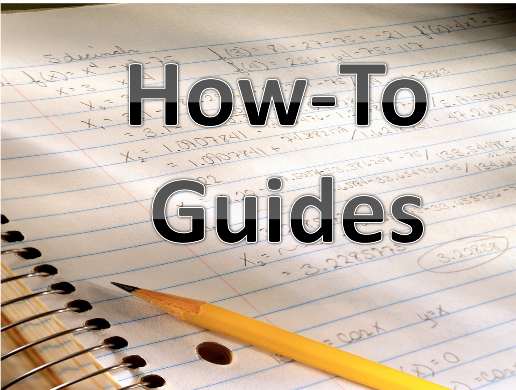How to Guide: The Total Resource for Those Seeking Practical Solutions
How to Guide: The Total Resource for Those Seeking Practical Solutions
Blog Article
How to Create a Comprehensive Budgeting Plan to Attain Financial Stability and Control Over Your Costs
Establishing an extensive budgeting strategy is vital for achieving financial security and preserving control over expenses. It starts with a thorough analysis of your present monetary landscape, which consists of evaluating income and expenditures. This foundation enables the formulation of wise economic goals, assisting effective decision-making. Furthermore, creating a structured budget plan structure can define important from discretionary expenditures. Yet, the journey does not end there; the continuous modification and surveillance of your budget are important for lasting success. Understanding the nuances of this procedure can significantly influence your financial trajectory and way of life options.
Analyze Your Existing Financial Scenario
To successfully develop a budgeting plan, it is essential to extensively analyze your existing financial situation. It is critical to compute your overall month-to-month revenue accurately, as this number will certainly lead your budgeting decisions.
Fixed expenditures, such as rental fee or mortgage repayments, insurance policy, and energies, remain constant each month. In contrast, variable costs, like groceries, home entertainment, and optional investing, can rise and fall.
Additionally, think about any type of arrearages, including credit score card equilibriums, pupil car loans, and individual financings. Understanding your liabilities is important for developing a strategy to handle and lower them effectively. By conducting an extensive evaluation of your monetary scenario, you can develop a strong groundwork for your budgeting plan, eventually leading to enhanced monetary security and control over your costs.
Set Clear Financial Goals
Frequently setting clear financial goals is important for efficient budgeting and long-term financial success. Specifying certain, measurable, achievable, pertinent, and time-bound (CLEVER) objectives allows people to develop a roadmap for their financial journey. These objectives can include various facets of personal finance, consisting of saving for retirement, acquiring a home, or settling financial obligation.
To begin, evaluate your priorities and identify temporary, medium-term, and long-lasting objectives. Short-term objectives may consist of developing an emergency fund or conserving for a holiday, while medium-term goals can include saving for a cars and truck or funding a child's education and learning (How to guide). Long-lasting goals usually concentrate on retirement financial savings or riches accumulation
Following, quantify your objectives to provide quality. Instead of aiming to "conserve more cash," specify "save $10,000 for a down settlement by December 2025." This level of uniqueness not just enhances motivation but additionally assists in measurement of progress.
Last but not least, routinely evaluation and adjust your economic goals as situations transform. Life occasions such as job changes, family growth, or unanticipated expenses can impact your financial circumstance, making it necessary to remain responsive and adaptable to achieve sustained monetary security.
Create Your Budget Plan Structure
Establishing a spending plan framework is a fundamental action in bringing your economic objectives to fruition. A well-structured budget plan structure acts as a blueprint for handling your earnings, costs, and cost savings, permitting you to align your costs with your financial desires.
Begin by categorizing your expenses into discretionary and crucial classifications. Necessary costs consist of needs such as housing, utilities, groceries, and transportation, while discretionary costs incorporate entertainment, eating in restaurants, and deluxe things. This category helps you prioritize your spending and recognize locations where modifications can be made.
Next, determine your income resources and determine your total regular monthly income. This should consist of earnings, sideline, and any easy revenue. With a clear image of your revenue, you can designate funds to every expense category extra effectively.
Integrate financial savings right into your budget plan structure by establishing aside a specific portion of your income. This will certainly assist you develop an emergency fund and add to lasting monetary goals. A solid budget structure not only gives clearness on your financial scenario but additionally equips you to make informed choices that advertise financial security and control over your expenses.
Display and Adjust Regularly
Monitoring and changing your budget plan is essential for maintaining financial health and ensuring that your investing aligns with your progressing objectives. Frequently assessing your budget allows you to determine inconsistencies in between your planned costs and actual costs. This technique helps you stay liable and mindful of your economic situation.
Begin by setting a constant routine for budget reviews, whether it be weekly, regular monthly, or quarterly. During these evaluations, examine groups where you might be spending too much or underspending. This evaluation can expose patterns that require modifications in your budgeting technique. How to guide. If you regularly spend too much in discretionary categories, it may be time to decrease those allotments or find ways to cut back.
Remember, a spending plan is a living file that should evolve with your monetary circumstances. By proactively monitoring and changing your spending plan, you can maintain control over your costs and job towards accomplishing your economic stability objectives.
Make Use Of Tools and Resources
A vast range of resources and devices can substantially boost your budgeting process, making it much easier to remain and track expenditures on target. Financial management software program, such as Mint, YNAB (You Required a Budget), or EveryDollar, provides user-friendly interfaces for checking revenue and expenses in real-time. These systems frequently feature automated monitoring of purchases, classification of investing, and graphical representations of your financial circumstance, promoting informed decision-making.
Along with software application, mobile applications can use ease and accessibility for budgeting on-the-go. Numerous apps enable the syncing of checking account, ensuring accurate data while providing notifies for upcoming bills or budgetary limits.
Additionally, spreadsheets, such as Microsoft Excel or Google Sheets, can be personalized to produce a tailored budgeting system. These tools enable users to by here are the findings hand input information, evaluate trends, and project future expenses based upon historic costs patterns.
Finally, think about leveraging academic resources such as budgeting workshops, online courses, or economic blog sites. These sources can strengthen your understanding of efficient Visit Your URL budgeting methods and assist you make notified options that line up with your financial goals. Making use of these devices and sources is critical in accomplishing monetary security and control over your expenditures.
Verdict

By performing an extensive evaluation of your economic scenario, you can develop a strong foundation for your budgeting strategy, ultimately leading to improved monetary security and control over your expenditures.

By examining the existing financial situation, setting clear monetary goals, and best site creating a structured budget framework, individuals can effectively allocate resources. Utilizing economic management tools further boosts the budgeting procedure, eventually leading to enhanced monetary control and stability.
Report this page